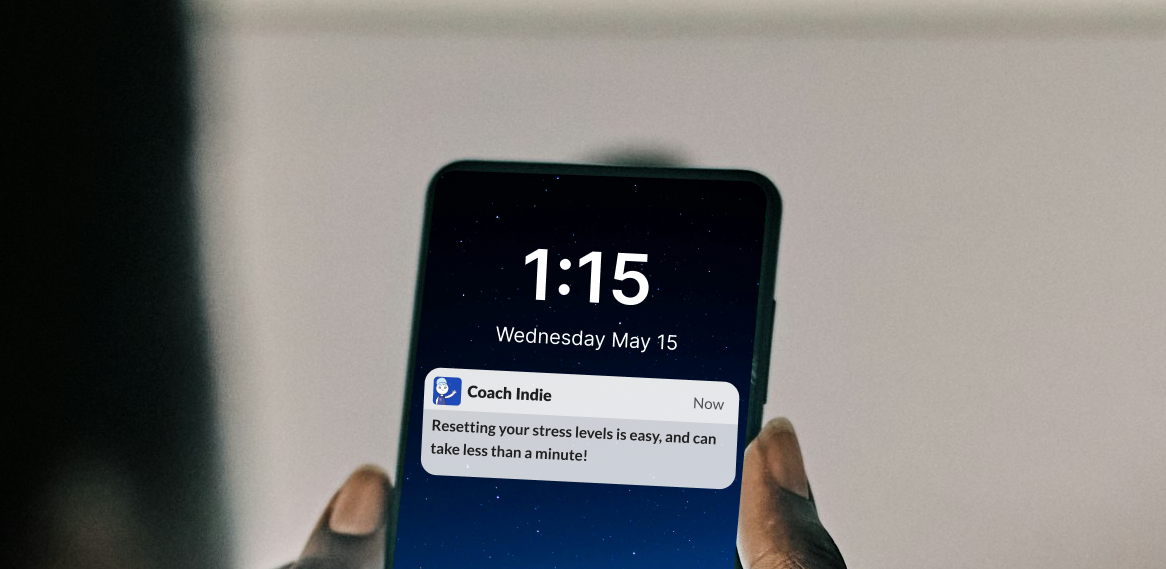The Covid-19 breakout has left many incredibly anxious about their health, wellbeing and livelihood. The future is uncertain. It’s the perfect storm of stress, and it’s affecting us mentally and physically. It certainly doesn’t help that prolonged stress weakens our immune system, making us more susceptible to illness. Just one more thing to stress about…
Escaping this cycle of stress may seem like an impossible task right now, but there are ways. In fact, we can actually use stress to improve our health and wellbeing. It’s not the severity or type of stress that dictates how it affects us. It’s our mind-set and how we choose to react that matters most.
Those that allow stress to be a negative force in their life are more likely to feel the mental and physical effects. Whereas those that acknowledge and embrace their stress can actually use it to boost productivity, and mental and physical resilience, ultimately making them healthier.
This was proven in a study from Stanford University during the peak of the 2008 GFC. Employees at financial institutions were given a three-step guide to help them adopt a “stress is enhancing” mind-set. After one month of the study, employee stress was down and productivity was up. How, you ask?
By embracing their stress using three steps. Three steps you can use to help change the way you react to stress, for the better. And, let’s face it, we could all use a bit of help coping with this uncertainty right now.
Here we go.
Step 1: Acknowledge your stress

This first step is to recognise and admit to yourself that you are stressed. By acknowledging stress, we can begin to shift our mindset from a fearful, defensive place to one of thought, purpose and action.
When we ignore stress, our brain tries to help by constantly checking in to see if we’re thinking about that thing that’s stressing us out - e.g. coronavirus. Naturally, this makes us think about it more… adding to our anxiety.
Not only does suppressing stress not work, it’s emotionally exhausting, and counterproductive in trying to reduce it.
Step 2: Own your stress

Once you’ve acknowledged your stress, it’s time to own it. This can be hard during a pandemic, but, nonetheless, extremely important. You see, we stress because we care. There is motivation and personal value behind our stress. And avoiding this can lead to a disconnect from what we value most - e.g. health, relationships, family, career.
Psychologist Alia Crum recommends connecting values and goals with your underlying stress by completing the following sentence about what was stressing you out in Step 1:
“I’m stressed about [insert stressor from Step 1] because I deeply care about…”
Owning your stress helps you take the necessary steps to embrace it in order to manage it more effectively.
Step 3: Use your stress

Now you’ve connected values and goals with your underlying stress, it’s time to use that energy to move forward in a positive way. Focus on how you react to these stressors and channel your energy into a positive outcome.
-
Is your reaction in line with the values and goals behind that stress?
-
Is your reaction helping or hindering?
Consider these examples:
Example 1: Family at home
Snapping at your family because they’re not washing their hands for long enough.
Clearly you’re worried about your family at home, but this reaction is not going to help. Try printing out an excerpt of humorous text or insight that takes approx 20 sec to read and stick it above your sink. Replace each week. Or sing the chorus of a song with your family as they wash their hands. This can also help brighten the mood.
Example 2: Community
Watching around-the-clock media coverage on the COVID-19 pandemic and economic fallout.
Yes, you’re concerned about the impact on society and your community, but binge-watching coverage is only going to cause you more anxiety. Cut down on media coverage, and reach out to local community support groups to see if there is anything you can do that is helpful and safe.
Example 3: Working remotely
Scolding your team for struggling to deliver to their usual standard.
Your job is important. It’s your reputation, your livelihood, and the stakes are high during this time of uncertainty. Channel your energy into understanding the challenges your team are facing working from home and, as a leader, help them to navigate these challenges to create a happier, healthier, more productive team.
Final thoughts

We aren’t just working from home. We have been sent home to work during a global crisis. It’s stressful. There is so much in the world right now that we can’t control. But we can control how we react.
Use your coronavirus stress. Channel it to create better outcomes for the things you can control. We will look back on this time and remember how we responded during this crisis. Were we true to our values? Were we kind? Did we make the most of the opportunity to grow and learn and support those in need?
When feeling stressed - embrace it!
Understand and measure your stress in real-time - with Indie by Pioneera.






